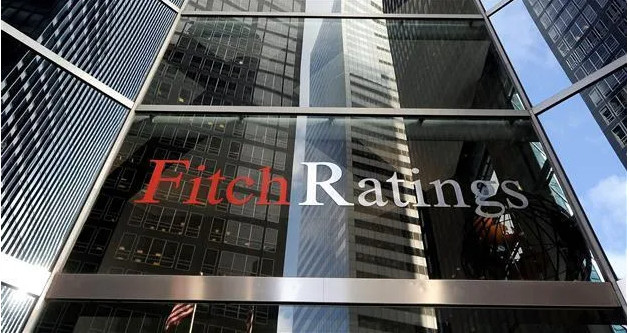
About five months after upgrading the Greek economy to BB+ with a stable outlook, one step above investment grade, Fitch Ratings decided on Friday to keep its rating unchanged.
Greece’s rating is supported by structural indicators, including governance scores, human development indicators and GDP per capita.
These advantages correspond to the legacies of the sovereign debt crisis, which include large stocks of public and external debt, as well as low medium-term growth potential and vulnerabilities in the banking sector.
Improved outlook for 2023
Fitch revised its forecast for GDP growth to 2.3% in 2023 (from 0.9%) and curbing energy risks.
“We still expect household consumption to slow significantly this year, reflecting the impact of inflation and reduced credit demand. On the contrary, investment growth will remain stable thanks to the absorption of funds under the Recovery and Resilience Facility (RRF), while sectors such as tourism will continue to support exports,” the rating agency emphasizes.
Critical reforms for medium-term growth
Fitch expects the economy to expand by 2.0-2.5% in 2024-26, driven by investment and a recovery in household consumption. Its forecasts are based on the assumption that the Greek authorities will continue to meet milestones and targets under the RRF, which is the key anchor for unlocking public and private investment in the short to medium term. Addressing demographic challenges remains a major structural challenge, with planned labor reforms crucial to raising participation rates.
On elections
The agency notes that Greece is called to vote a second time on June 25, “given the failure of the parties to form a government after the May 21 parliamentary elections.”
And it points out: the centre-right New Democracy (ND) performed well above poll predictions, securing almost 40% of the vote and making it likely to win the upcoming vote. If ND manages to secure a comfortable majority (which seems likely given that the second election will revert to a majority bonus system, giving the winner an extra 50 seats), this could reduce the risks of political instability and allow the continuation of policy.
“Overall, we maintain our prediction that the next Greek government will maintain good relations with the EU and other partners, ensuring macroeconomic stability,” the report said.
Deficit reduction
Fitch expects continued fiscal consolidation in 2023, partly reflecting a better starting position as the deficit is lower than expected in 2022. It forecasts the primary surplus to increase to 1% of GDP (and to 2% in 2024).
The stability program envisages a continued improvement in public finances until 2026, with the primary surplus increasing to 2.5% and public debt/GDP falling by 38 percentage points in 2022-2026. The program underlines the authorities’ broad commitment to fiscal prudence, with some reforms (including the digitization of revenues) likely to provide some structural improvements.
However, it notes risks that include weaker growth and rising spending demands. Continued containment of spending may prove more difficult after temporary pandemic relief measures fully wind down or if revenue growth slows significantly.
Inflation
The international agency estimates that annual harmonized inflation will ease to 4% in 2023 and 1.9% in 2024, given base effects and subdued economic activity. Some upside risks are likely to persist, given pressures from core inflation (which is now above the headline rate of around 6%). Labor market momentum will support faster wage growth this year (over 6%), but risks of a wage-price spiral are limited.
Factors that could, individually or collectively, lead to a negative review/downgrade action
Sustained upward trend in public debt/GDP, for example due to structural fiscal easing, weak growth or the realization of contingent liabilities by the banking sector.
Renewed adverse shocks in the Greek economy affecting the economic recovery or medium-term growth potential of Greece.
Factors that could, individually or collectively, lead to positive rating action/upgrade
Confidence in a post-election fiscal policy leading to a steady downward trend in the public debt/GDP ratio over the medium term.
Improving medium-term growth potential and performance, for example due to higher investment momentum and/or the implementation of structural reforms.
The next reviews
The fall cycle begins on September 8th from DBRS. On September 15, we have the second rating from Moody’s. On October 20, the second evaluation by Standard & Poor’s will take place. Finally, Greece will be rated by Fitch on December 2.
JP Morgan considers that with the second elections pending, it is very difficult for Fitch to proceed with an upgrade of Greece, and it advances the second half of the year for this to happen, from DBRS on September 8, from Standard & Poor’s on 20 October and by Fitch on 1 December.
It remains questionable how Moody’s will act, which places the Greek debt three notches below the investment grade. For Greek bonds, analysts believe that they are currently significantly outperforming the corresponding government bonds of the Eurozone countries. This overperformance is especially noticeable after May 21 and the widespread dominance of New Democracy.
The investment grade
Note that investment grade is the level of a country’s credit rating above which there is a relatively low risk of bankruptcy for its government entity. Ratings above this level make the country an attractive investment destination, while below it reflect a low credit rating.
Each credit rating essentially signals to a lender or investor the likelihood that the country issuing a bond will be able to meet its debt obligations without the risk of default.
Market expectations
New Democracy’s landslide victory in the May 21 clash was enthusiastically received by the market, with stocks rallying and Greek bond yields falling, closing the spread. And the first assessments of international analysts are converging that a new term for New Democracy will bring Greece closer to regaining its investment grade, which it lost 13 years ago.
This optimism is also reflected in the bond market with Greek bonds registering a rally, and their yields retreating against the negative current prevailing in Europe. It is indicative that Greece now borrows cheaper than Italy and Britain, which already have an investment rating, and almost at the same rate as the USA. And the two-year yields are now similar to those of France.
What bonds show
The optimism that exists for the Greek economy is also reflected in the yields of Greek bonds.
Contrary to the general trend, the yield of the Greek 10-year bond recorded a significant first yesterday at 3.64%, with the spread against the German bond falling to 122 points, to an 18-month low.
Christopher Rieger, head of interest rates and credit research at Commerzbank, said in a research note that Greece’s yield spread over Spain narrowed to less than 30 basis points.
What the investment grade recovery means
Inflow of funds for Greek securities – Reduction in the cost of money
Before the debt crisis and the era of the memoranda, the Greek debt had reached the grade A+, i.e. five notches above the investment grade, while the country’s borrowing costs were only 0.2% higher than Germany’s.
The investment grade lost in the spring of 2010, when with the outbreak of the debt crisis last Moody’s downgraded the country’s creditworthiness by four notches in one day, according to bankers, affects the determination of the interest rates at which countries borrow from international markets, as it leads to an improvement in the ratings of the country’s banks and other businesses, improving its credibility as a result of the inflow of more funds either through the stock market or as Foreign Direct Investments.
Placements
It is also the limit for the start of the placements of some institutional investors (mutual funds, sovereign funds, pension funds, etc.) in investment products of the country as they invest according to their statutes 90% of their reserves, worth 28 trillion dollars, in securities with an “investment grade” rating.
Latest News

WTTC: Travel & Tourism to Create 4.5M New Jobs in EU by 2035
This year, international visitor spending is set to reach 573 billion euros, up by more than 11% year-on-year

IMF: US Tariffs Shake Global Economy, Outlook Downbeat
IMF slashes global growth forecast to 2.8% as U.S. tariffs create uncertainty and ‘negative supply shock

First Step Towards New Audiovisual Industry Hub in Drama
The project is set to contribute to the further development of Greece’s film industry and establish Drama as an audiovisual hub in the region

Airbnb Greece – Initial CoS Ruling Deems Tax Circular Unlawful
The case reached the Council of State following annulment applications filed by the Panhellenic Federation of Property Owners (POMIDA)

Mitsotakis Unveils €1 Billion Plan for Housing, Pensioners, Public investments
Greek Prime Minister Kyriakos Mitsotakis has announced a new set of economic support measures, worth 1 billion euros, aiming to provide financial relief to citizens.

Alter Ego Ventures Invests in Pioneering Gaming Company ‘Couch Heroes’
Alter Ego Ventures' participation in the share capital of Couch Heroes marks yet another investment by the Alter Ego Media Group in innovative companies with a focus on technology.

Corruption Still Plagues Greece’s Driving Tests
While traffic accidents continue to claim lives on Greek roads daily, irregularities and under-the-table dealings in the training and testing of new drivers remain disturbingly widespread

Pope Francis Died of Stroke and Heart Failure Vatican Confirms
As news of the official cause of death spread, tributes poured in from across the globe. The 1.4 billion-member Catholic Church is united in grief, remembering a pope who championed inclusion, justice, and compassion

Increase in Both Museum Visits, Revenues for 2024
As expected, the Acropolis was the top archeological site in the country, followed by Sounion, Mycenae, the ancient theater of Epidaurus, and Vergina in northern Greece

Where Greece’s Tourists Come From: A Look at 2025’s Top Visitor Markets
The United Kingdom continues to hold the top spot as the largest source of incoming tourism, with 5.6 million seats booked for Greece this summer — up 2.2% from last year. This accounts for 20% of all international air traffic to Greece
















![Ξενοδοχεία: Μεγάλο το ενδιαφέρον για επενδύσεις στην Ελλάδα – Η θέση της Αθήνας [γραφήματα]](https://www.ot.gr/wp-content/uploads/2025/03/Athens-hotels-90x90.jpg)
























 Αριθμός Πιστοποίησης
Αριθμός Πιστοποίησης